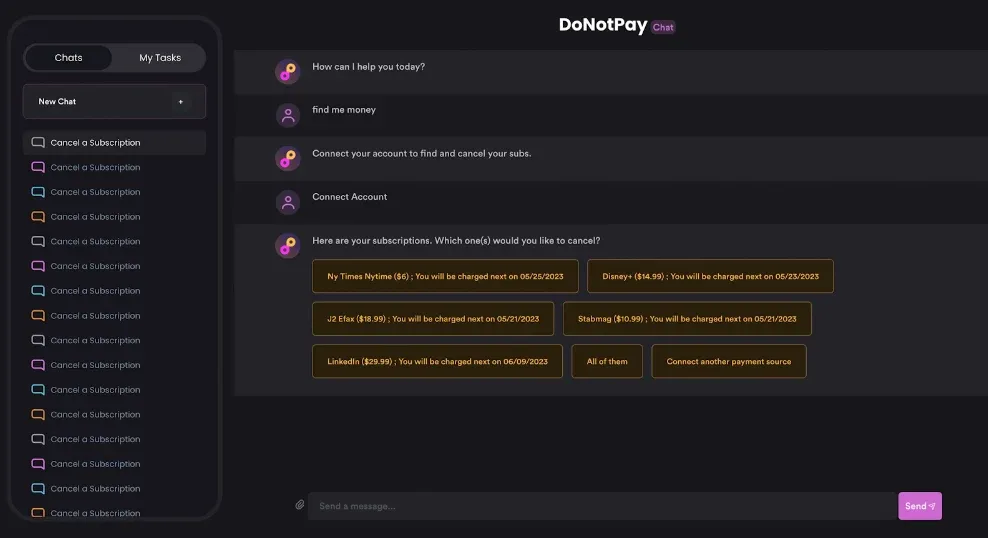
Dear Studio Fam,
There's a unique mix of product and regulatory news this week with coverage of the FTC's latest crackdown on big tech, a spotlight on a new AI integration in a beloved email tool, and a rundown of two of the most compelling examples of GPT used in a consumer application to help people with their day-to-day lives. We also spotlight trouble brewing in Hollywood over the threat AI poses to screenwriters and analyze the response of a leading adult website to another state law requiring such websites to verify that all of their users are adults.
FTC Says Facebook ‘Reckless’, Proposes Ban On Monetizing Users Under 18

Meta, the parent company of Facebook, has a long history of running afoul of data privacy laws. It’s conduct has been so egregious that it received the largest ever civil penalty from the Federal Trade Commission in 2019 for deceiving its users about their control over their personal information within Facebook. Part of the settlement was a consent decree requiring Meta to hire independent third parties to audit its privacy practices, the result of which were additional findings of data privacy breaches.
Now the FTC alleges that Meta has further violated the consent decree by misleading parents about their ability to control their children’s communications on Facebook Messenger and misrepresenting the access it provided app developers to private user data. Meta is naturally upset, and has accused the FTC of conducting a political stunt while “allowing Chinese companies like TikTok to operate without constraint on American soil.”
Unlike the previous enforcement action, there is no settlement offered but there is a long list of new restrictions that would severely undercut Meta’s ability to monetize it’s youngest users. In addition to demanding a pause on the development of new products without FTC consent, the new FTC proposal includes a “blanket prohibition against monetizing data of children and teens under 18.” The use of facial recognition technology would require more disclosures and consents, and all aspects of the original and new consent decrees would be applicable to all Meta subsidiaries and new acquisitions.
Superhuman AI

Superhuman, the boutique $30 per month email service, has unveiled its new AI assistant feature that helps users instantly draft emails from simple notes. The demo is quite compelling and naturally leverages Superhuman’s streamlined command line interface to generate and refine email copy. The feature is currently in beta and available to existing Superhuman users upon request.
PornHub Blocks Utah To Protest Age Verification Law

PornHub, the Canadian pornography website owned by European holding company MindGeek, blocked all internet users in Utah from accessing its content to “protest” that state’s new law requiring websites with explicit sexual content to verify the age of all users. Similar to a law passed in Louisiana earlier this year, the Utah law extends into the digital realm the traditional retail prohibition of pornography sales to minors. PornHub maintains the law is “too restrictive,” lacks “proper enforcement,” and will “drive users to other websites that don’t use verification.”
Proponents of the law have responded with varying degrees of amusement and indignation, highlighting the fact that the law unanimously passed the Utah legislature. Considering the ease with which websites that handle sensitive medical and financial information leverage ID verification in their products without issue, some have suggested that PornHub’s professed commitment to protecting children from its content through other means is actually disingenuous.
How To Outsource Your Life To AI

AI product demos continue to evolve and this week we bring you two incredible examples from DoNotPay Founder Joshua Browder. DoNotPay is a website funded by A16Z that helps users fight traffic tickets, get refunds from airlines, and otherwise automate fights against bureaucratic systems designed to delay and deny rightful payments. By connecting existing APIs for handling mail and making financial transactions with GPT, DoNotPay has demonstrated that the best use case for AI might be helping consumers fight human-powered systems.
- Office Assistant: By leveraging EarthClassMail and Google’s Vision API, make GPT read your mail, automatically unsubscribe from junk mail, and send an alert if there’s actually something important in that giant stack of trash that gets put in your mailbox every day.
- Finance: By leveraging AutoGPT and granting access to your bank, financial statements, credit report, and email service, make GPT find and cancel unused subscription services, request refunds, and send angry snail mail citing US laws when refused.
Hollywood Writers Strike Over Streaming, AI Fears

The Writers Guild of America (WGA), the main union for the writers of Hollywood movies and commercial television productions, authorized a strike this week over fears of AI tools and the continued shift of production resources from traditional film to streaming content. Shows that are reliant on the union’s members for regular production like Saturday Night Live will go off the air until the strike is resolved, and local communities will almost instantly see a decline in tax revenues generated by production budgets.
The dispute between the WGA and production company circles around the continued growth of streaming services which make shorter content in faster intervals than traditional television and movie projects. The WGA fears their writers will be reduced to “gig workers” working as little as one day on a show. There are also fears that AI tools like GPT will be used to expedite production of scripts based on simple abstracts created quickly by writers, and that new GPT tools currently under development by the production companies will be trained on the writer’s previous works without permission or compensation.

